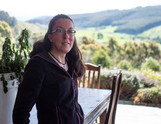What I've learnt about migrants to Tasmania so far...
- Mark Thomson
- Jan 6, 2021
- 3 min read
I have just finished listening through my latest interview with a lady who was born in Czechoslovakia, and which today is called Czechia for my 177 Nations of Tasmania podcast.
It made me think about some of the common themes that have comes up in the interviews and things that I have learnt that have surprised me from these migrant stories. Although I'm very much an "Anglo-Australian" when it comes to my ancestry, I've spent a good part of my life around people from multicultural/migrant backgrounds, so I came into the project with plenty of background and not expecting so many surprises. In many ways my goal was to help others, perhaps with cultural backgrounds like me, understand more about the experiences of migrants in a place like Tasmania. However, there have a been a few fairly common themese that I didn't quite expect, which have been very interesting.
First surprise perhaps is how positive everyone has been about Tasmania, to the point where I have become worried that people will think I'm being sponsored by the Tasmanian government to attract more migrants ! In particular almost everyone has commented on how much they like the cool climate, in fact some have mentioned it as their main reason for chosing Tasmania, which I think might stun a few locals (complaining about the ever-changing weather is a bit of a local pastime ) !
The second thing I've learnt, which is perhaps less of a surprise but more something that has made me reflect a bit more, is how much hearing the perspective of newcomers helps you appreciate all the things we take for granted - migrants may have arrived here from places that were unsafe, polluted, crowded, unstable or corrupt. I've also learnt about customs and behaviours that are common here but that you wanted think about unless point out by someone from outside. For example, a few have commented on needing to make appointments or fix times to see people here. One even commented that he had to make an appointment now to see his mother here, something he would never have done in his home country !
What is also notable is how willing all these people are to learn and adapt to the local culture and way of doing things. I think there is sometimes a perception that migrants "don't want to assimilate", but this seems to be far from the truth, though it's a complicate issue. I'm hoping hearing these personal stories and perspectives will help people see beyond the stereotypes that are sometimes perpetuated in the media. At the end of the day, people want to be accepted and they expect they will have to work hard to learn a new language and culture, something most Anglo Australians will never experience or have to think about.
Also, I'd say just about everyone from a non-English speaking background has mentioned language as their biggest challenge, even with other quite large challenges in some cases. As a former English teacher, I should perhaps not be so surprised, but the extent to which it was important for such a wide variety of people whether from Europe, Africa, Asia or South America, has surprised me a little and made me appreciate what a difference it can make.
I think it's incumbent upon us Australians whose families have lived here for however many generations to be open and understanding of the challenges newcomers face and find ways we can make life more comfortable.






















Comments